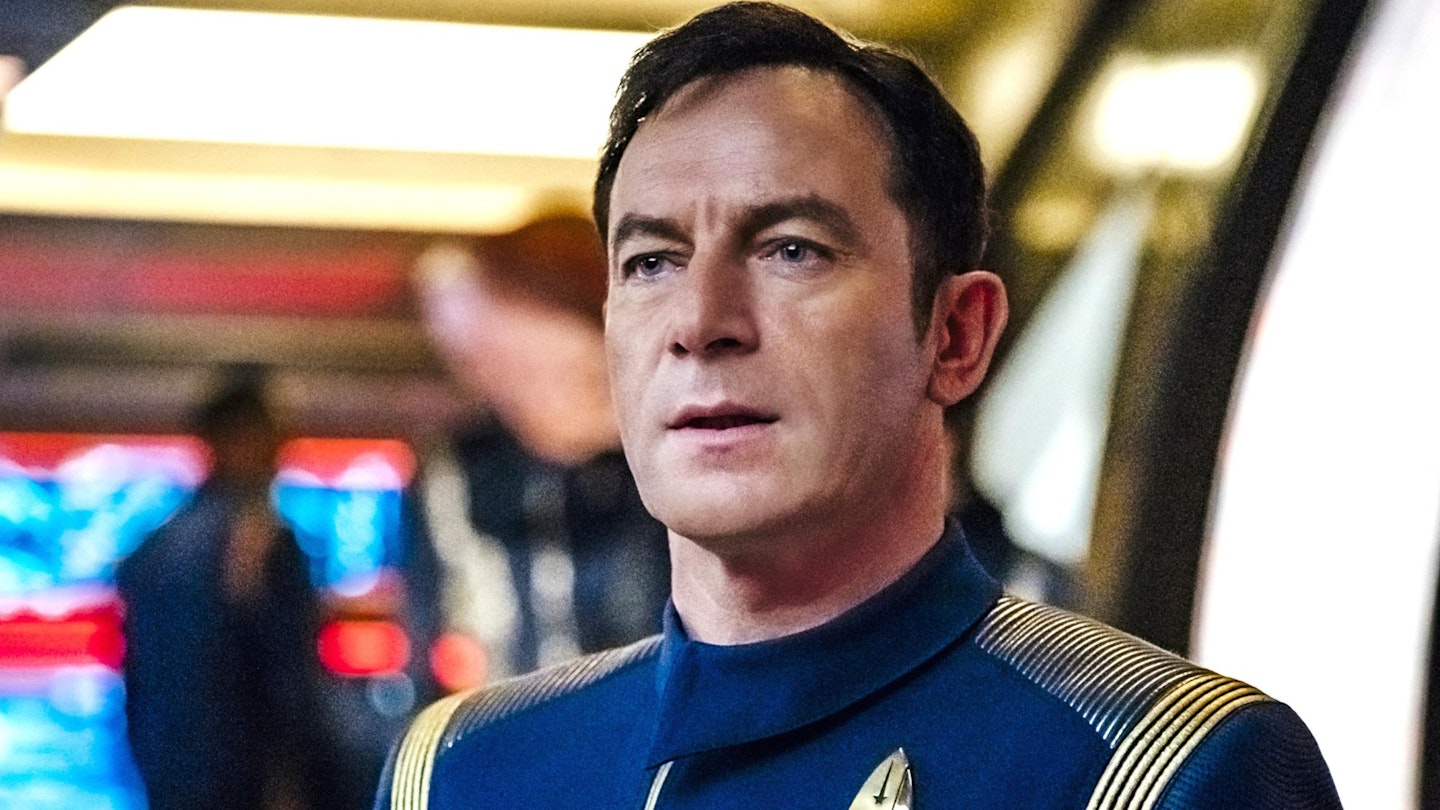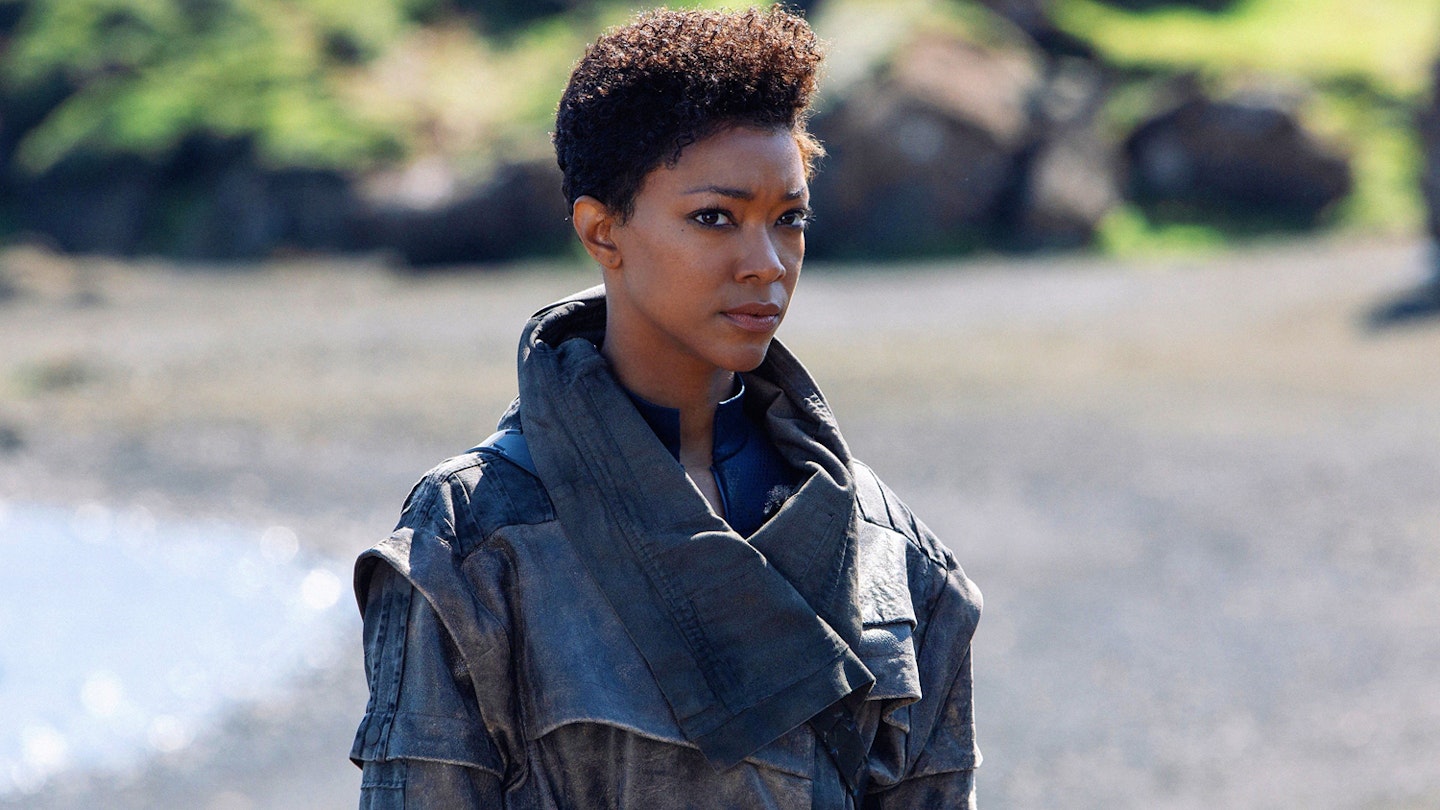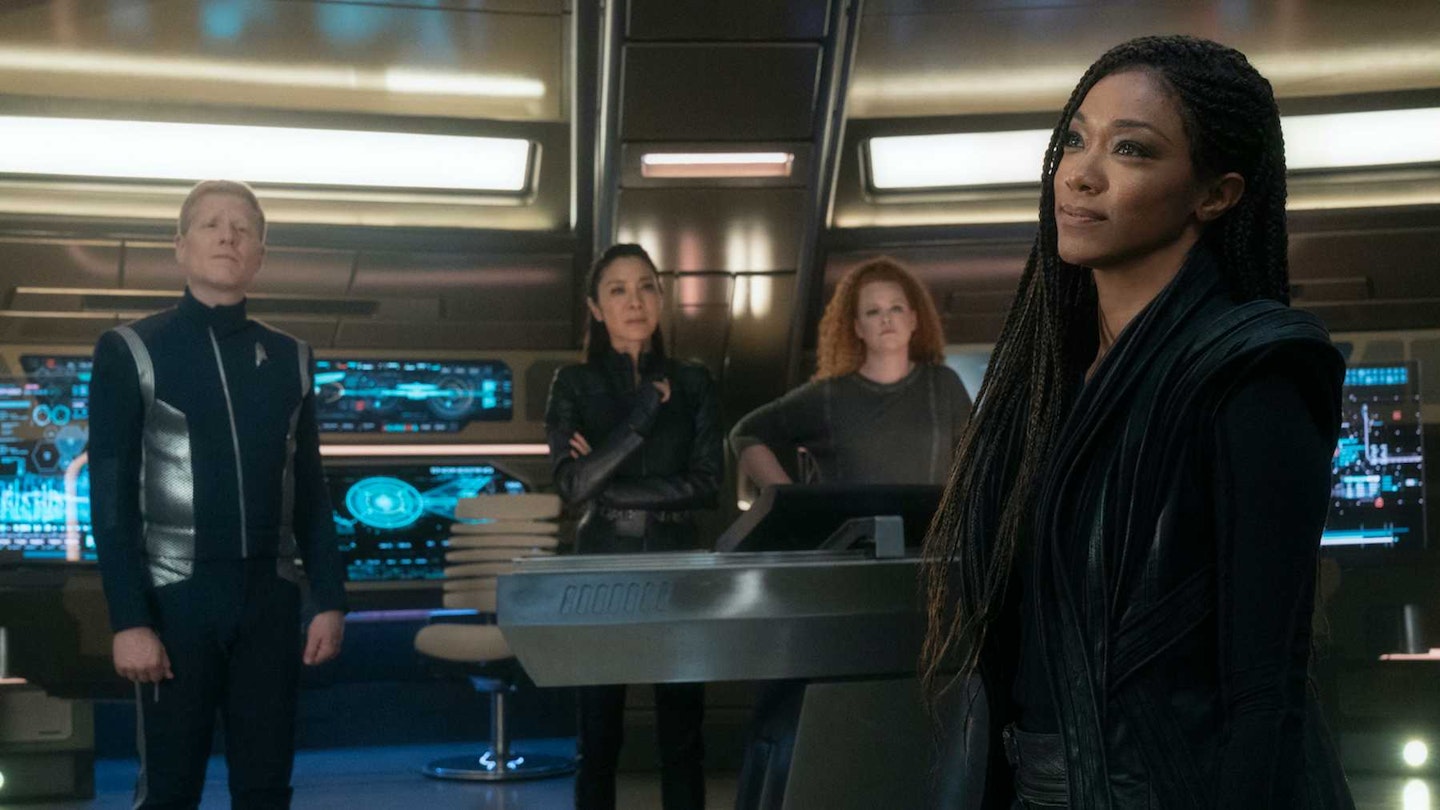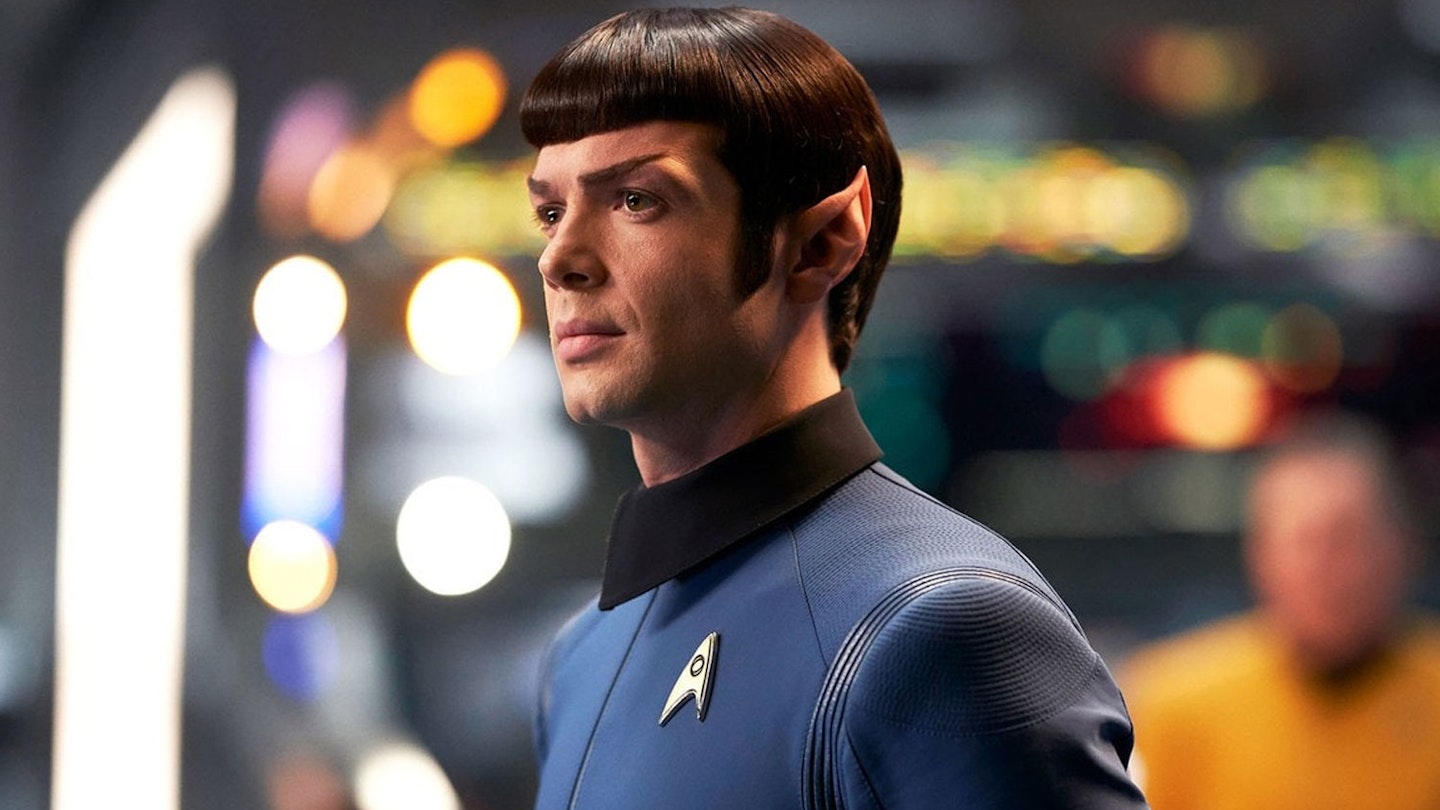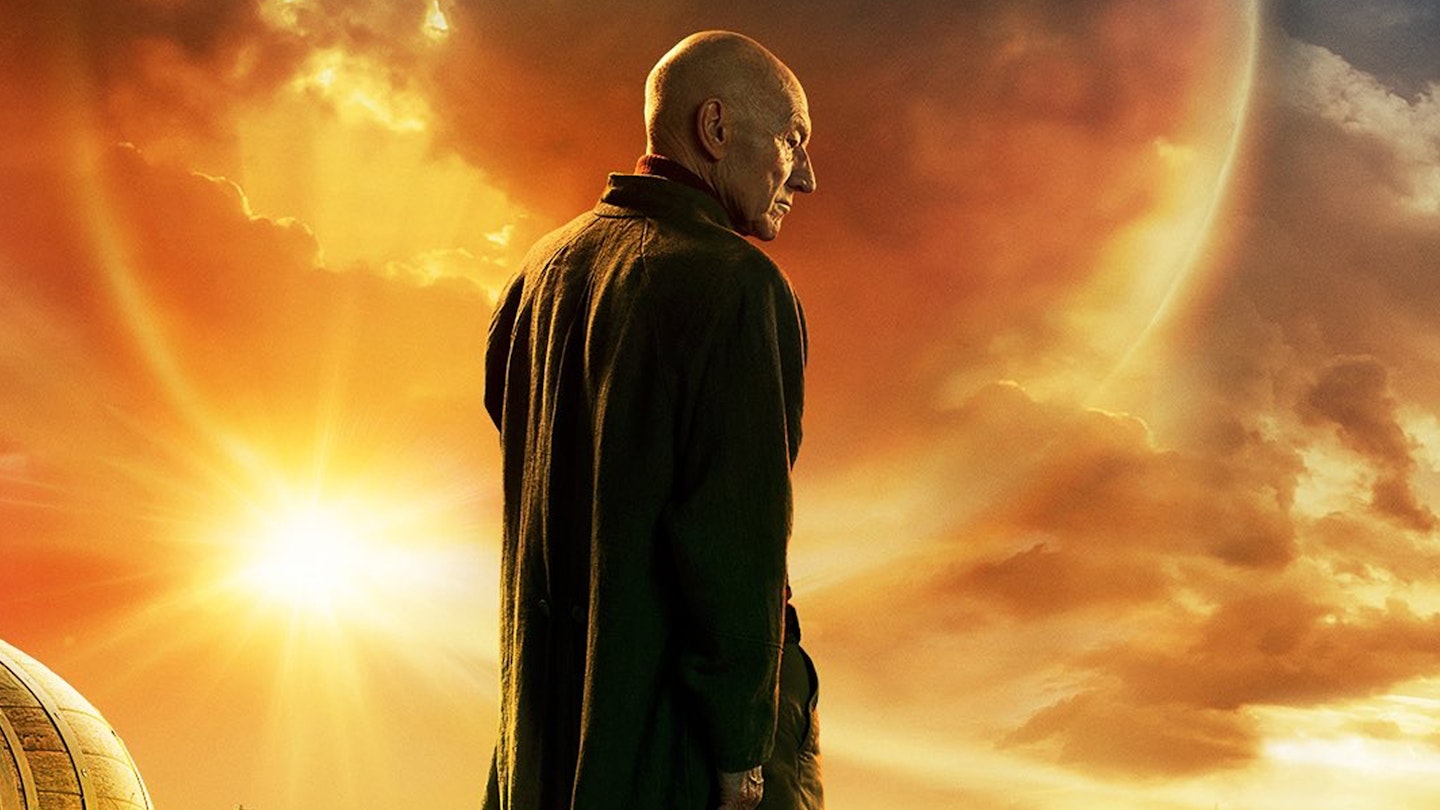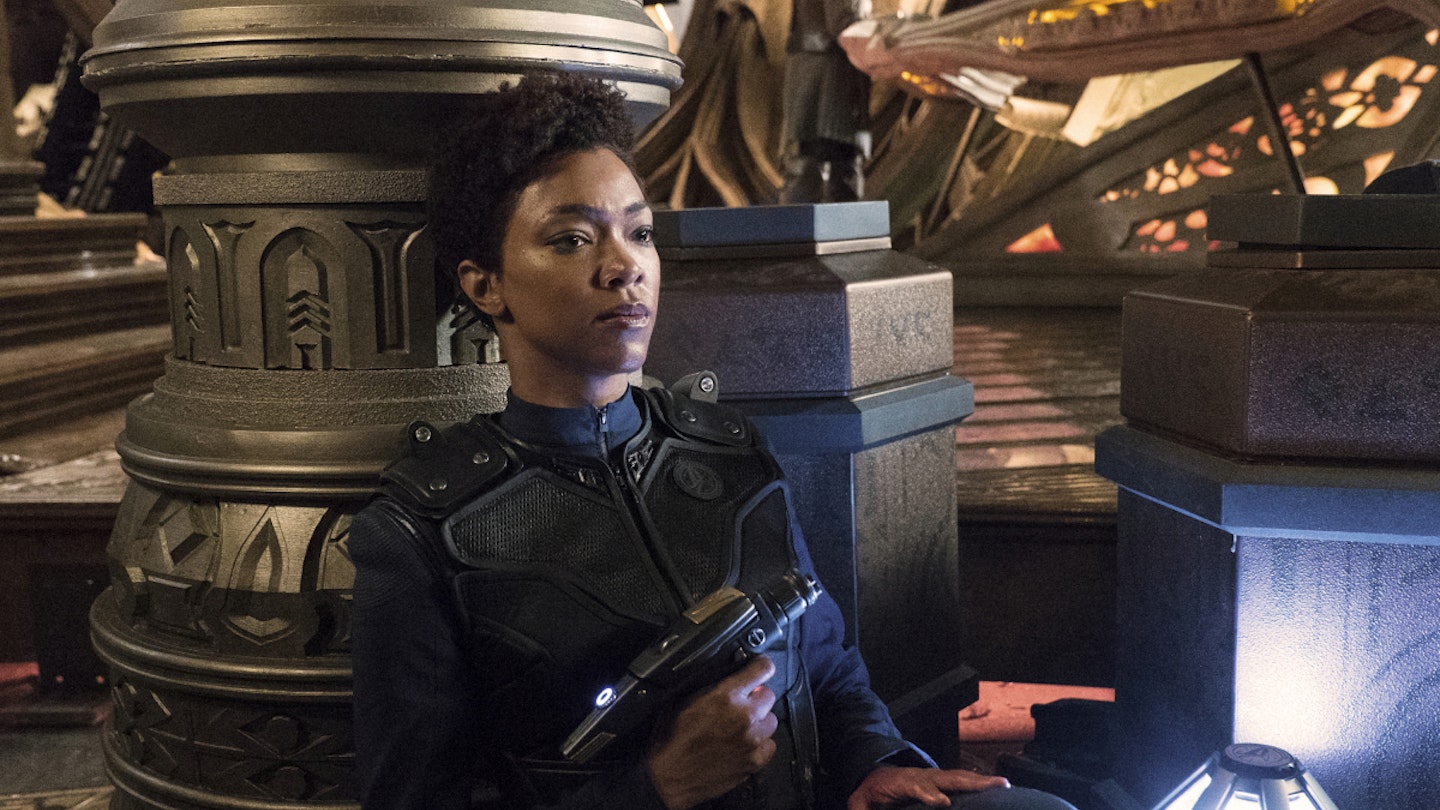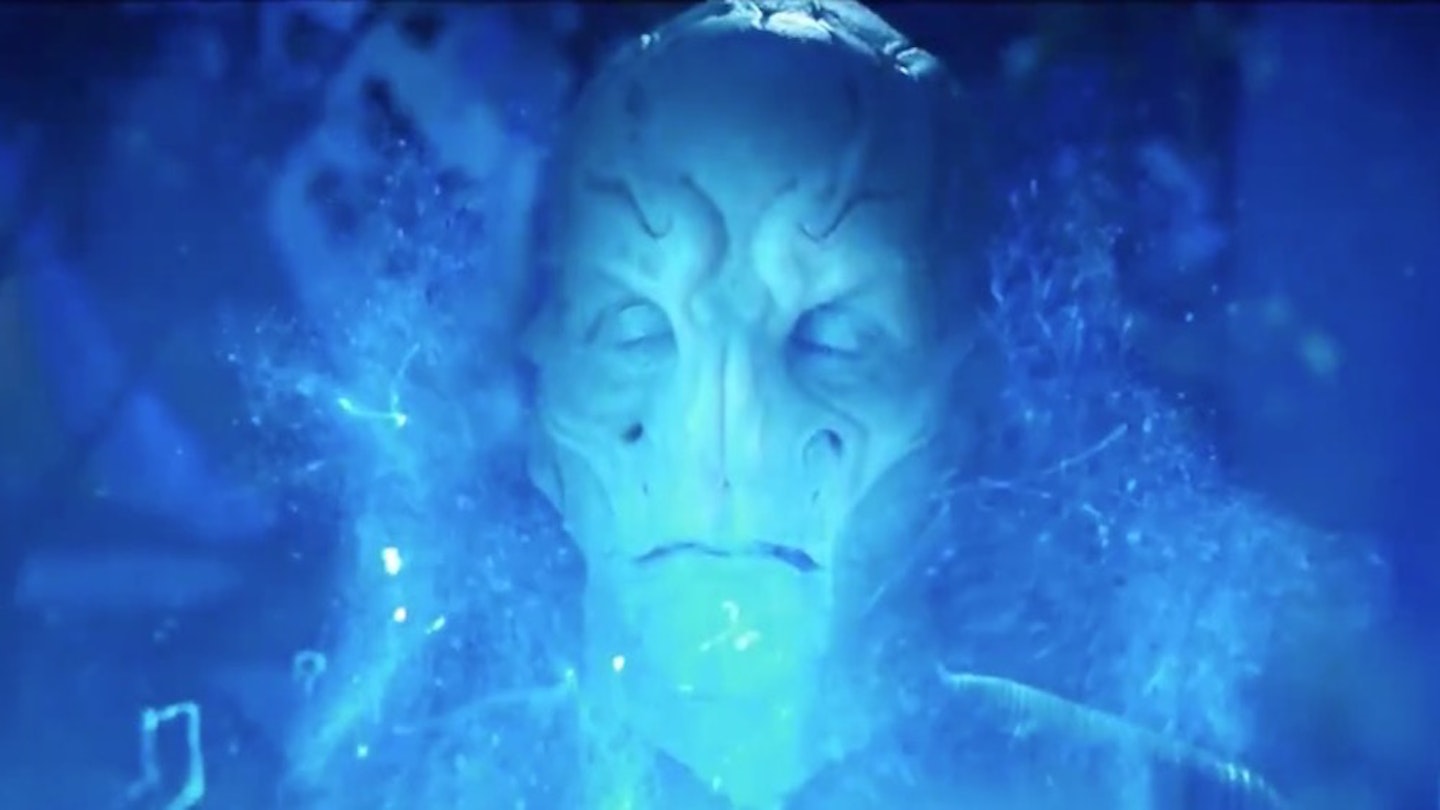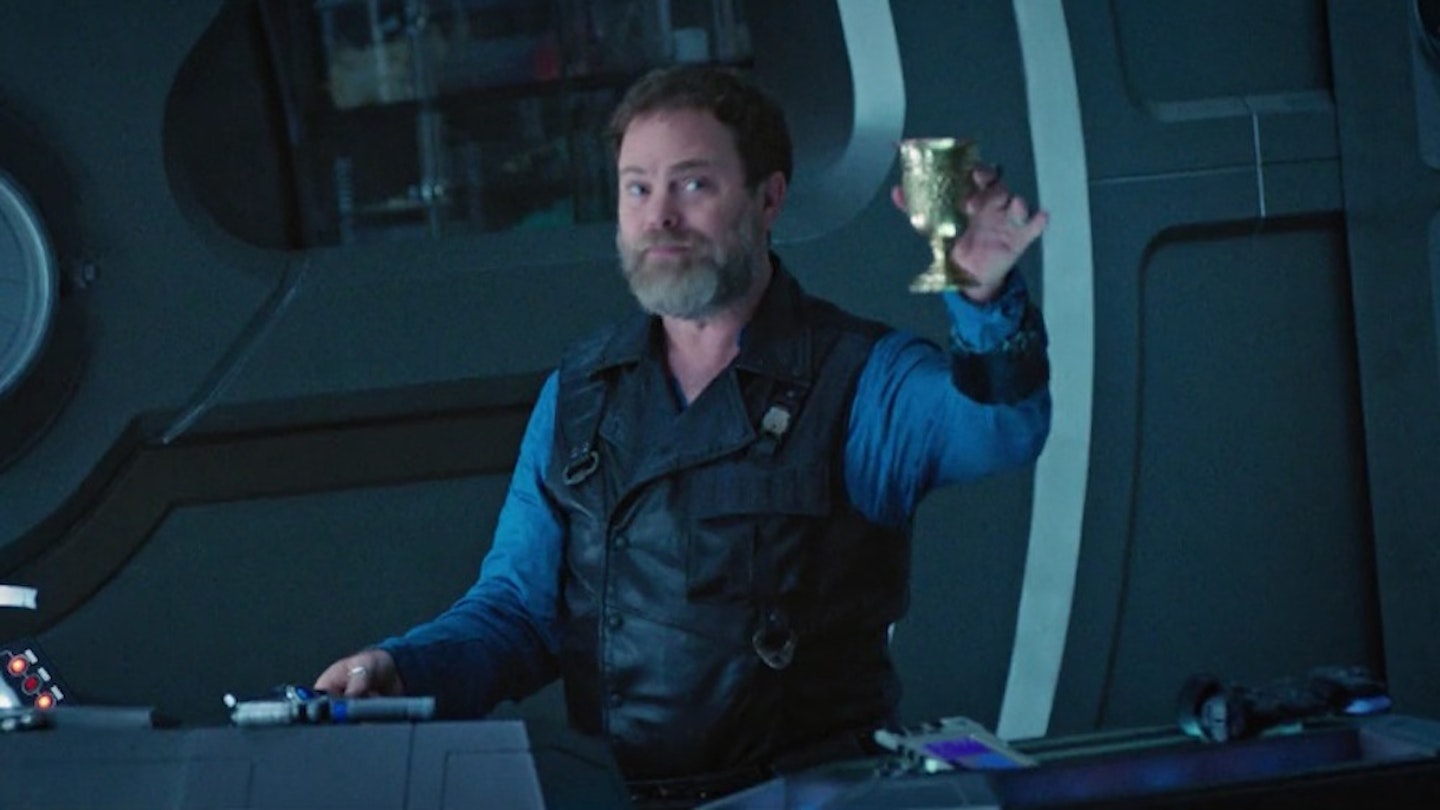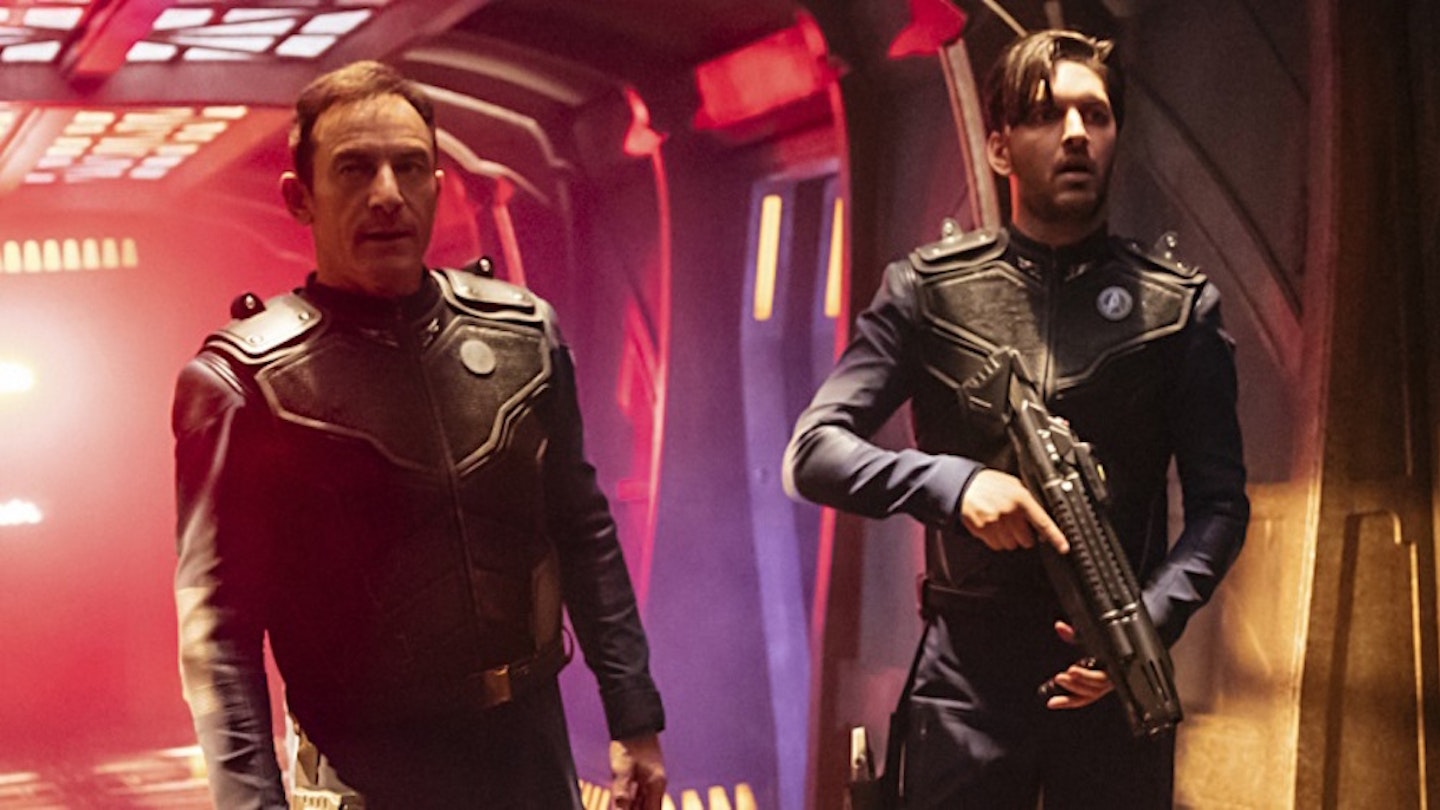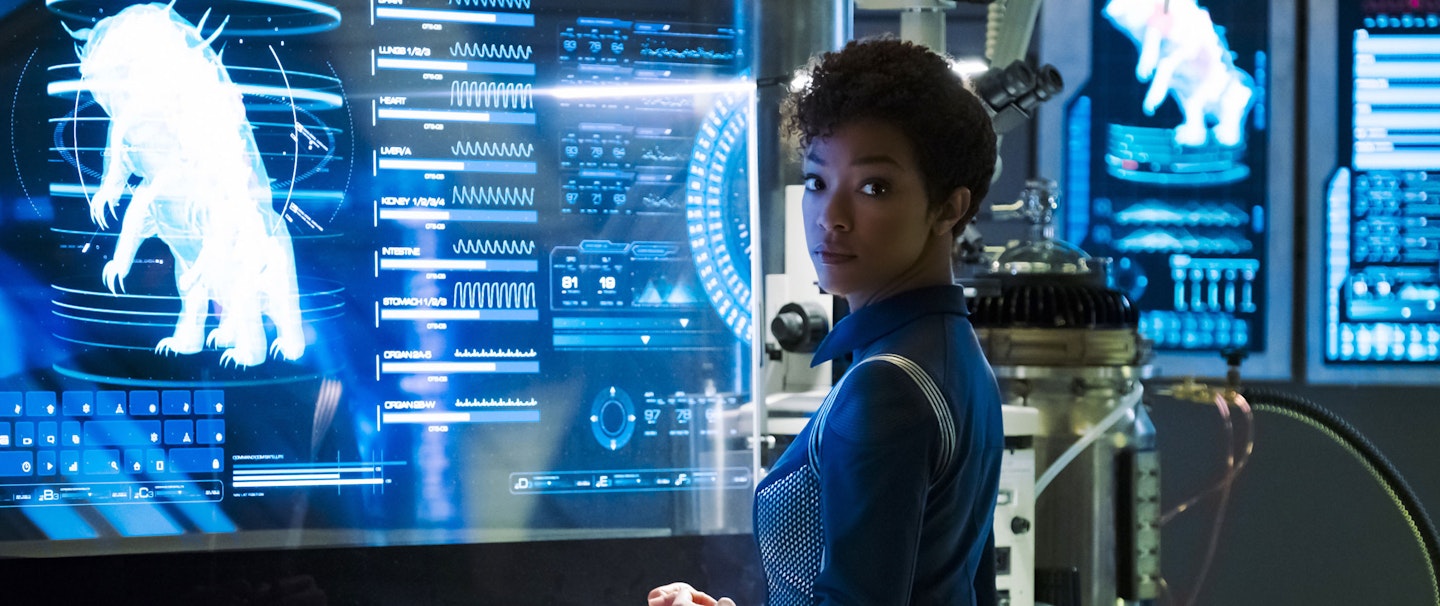
Spoilers are coming toward you at warp speed, so you'd better have deflectors on full
Previously on Star Trek: Discovery: Episode 1: “The Vulcan Hello”; Episode 2: “Battle at the Binary Stars”; Episode 3: “Context is For Kings”
Cast: Sonequa Martin-Green (Michael Burnham), Doug Jones (Saru), Shazad Latif (Ash Tyloer), Anthony Rapp (Paul Stamets), Mary Wiseman (Sylvia Tilly), Jason Isaacs (Captain Gabriel Lorca), Emily Coutts (Keyla Detmer), Wilson Cruz (Dr. Hugh Culber), Kenneth Mitchell (Kol); Guest Cast: Rekha Sharma (Commander Landry), Michelle Yeoh (Captain Philippa Georgiou); Written by Jesse Alexander & Aron Eli Coleite; Directed by Olatunde Osunsanmi
What It's About: Burnham is ordered by Lorca to weaponize the creature (given the nickname Ripper) that had been on the Glenn (see episode three) and is now in containment on Discovery. At the same time, the captain is desperate to get the Displacement Activated Spores Drive (DASD) operational — and the crew properly trained for combat readiness with the ship being able to materialize virtually anywhere in the galaxy, go into action and then disappear again. The schedule to do so is shortened when Starfleet orders them to head to Corvan II, a mining planet responsible for 40% of the Federation’s dilithium crystal supply, which is currently under attack by the Klingons. While Lorca expresses to his superiors confidence the starship can make the massive jump to help, Stamets thinks it’s a terrible idea as they haven’t worked out the kinks in the DASD. An attempt is made, but the Discovery ends up close to a star, the gravitational pull of which they’re barely able to pull themselves out of.
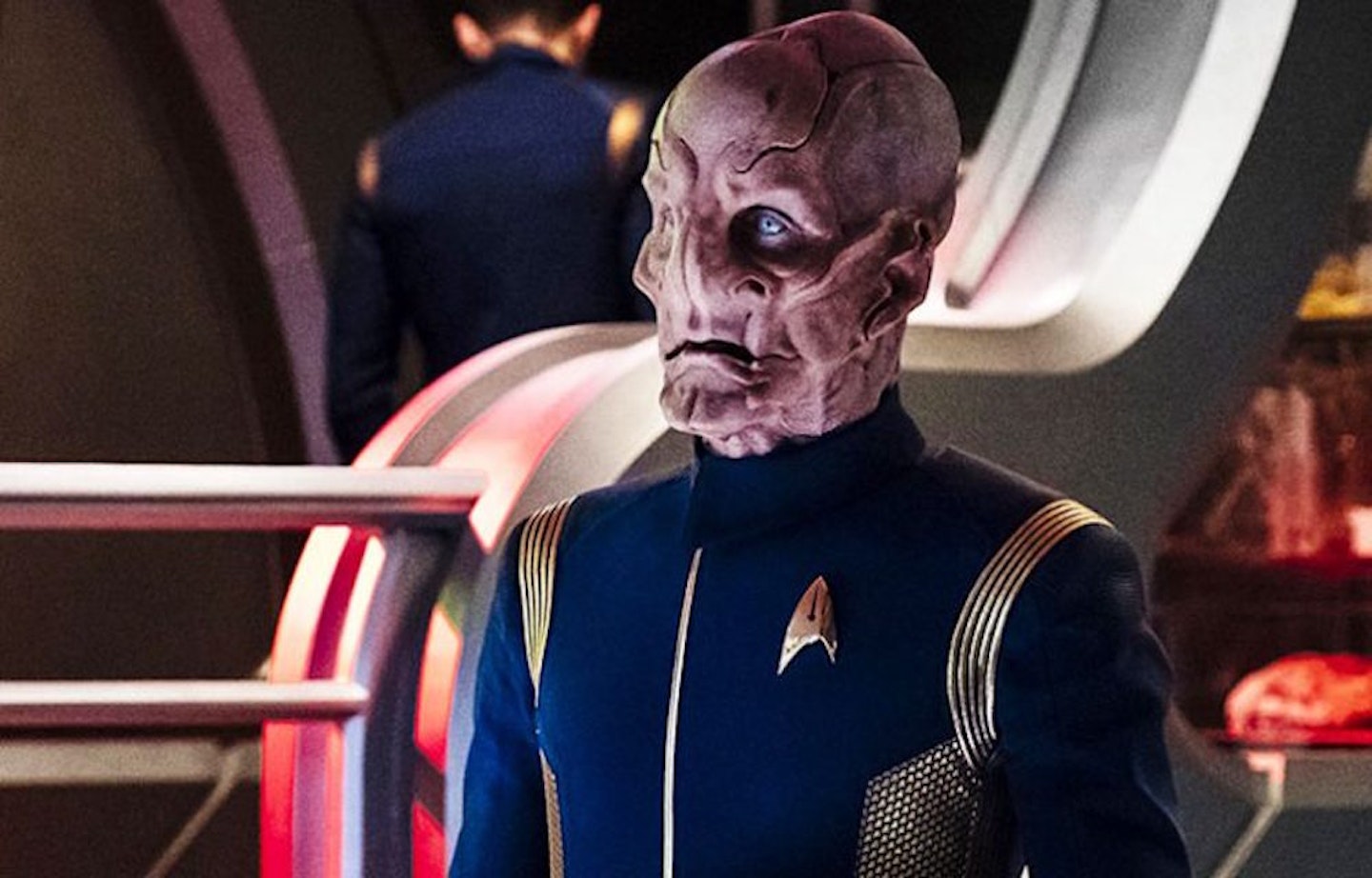
As Burnham studies the creature, Commander Landry arrives to make sure she stays focused, and to do so tries to sedate the creature to lop off its claw so that Burnham can study how it works. Needless to say, things go terribly wrong and Landry is killed. Putting this little detail behind them, Burnham, trying to prove out her theory, brings a canister of spores to the containment area and the creature does not attack. In fact, as it interacts with the spores, it actually behaves affectionately towards Burnham. Eventually she is able to convince Stamets of her theory and they manage to connect it to a piece of tech from the Glenn along with the spores, which puts the drive completely online and ready to go (though the creature, with the tech attached to it, reacts in agony as it’s used). The ship makes the jump and saves the Corvan colony, accompanied by an emotional cost seems high for Burnham.
Meanwhile, more intrigue with the Klingons, with Voq and L’Rell attempting to salvage the dilithium processor from the abandoned Shenzhou to get their own ship running. No sooner have they obtained it than they are the victim of a coup led by Kol, with Voq exiled to the Shenzhou, where he’s expected to die. L’Rell, who seemed to have turned against him, arrives covertly to provide the means for him to fleet to the “matriarchs” and the opportunity for them to win the war. One really nasty tidbit: the Klingons apparently ate Captain Georgiou's corpse.
Our Thoughts: Discovery has clearly been transformed from an exploratory vessel to a warship, and it is just as obvious that Jason Isaacs' Captain Lorca is far more comfortable with the latter. It’s a point that becomes clear when he brings Burnham to a chamber to show her the creature, but which also happens to be home to some of the deadliest weapons in the galaxy. “I study war; I learn from the best,” he says matter of factly.
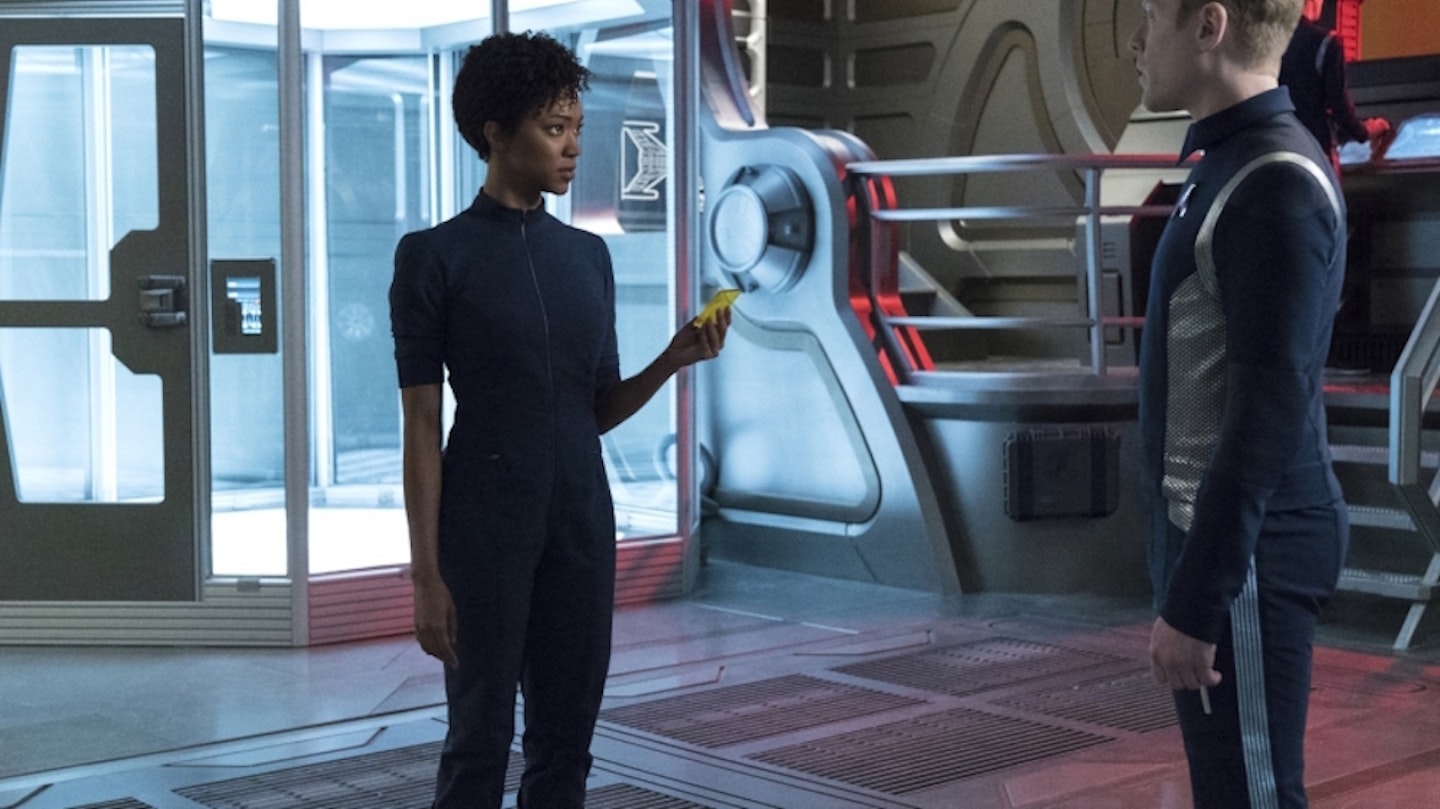
Burnham, as highly trained as she is, doesn’t seem to share that view. One of the the biggest complaints about this show to date has been the feeling it conveys that these are not the enlightened human beings that will be on display in The Original Series set only ten years later. However, this is the first time (outside of Michelle Yeoh’s late Captain Philippa Georgiou) that we’re getting a sense of it. When Landry refers to the creature as a monster, Burnham's immediate response is, “How do you know it’s a monster?” And from there, she continues to study it to gain a greater understanding. And she does, learning that it’s a peaceful creature and, through trial and error, that it actually connects to and communicates with the spores; that its species pursues spores throughout the galaxy, which theoretically makes them the ultimate navigators. It’s a realization that harkens back to The Original Series’ “The Devil In The Dark” and Next Generation’s (less successful) “Encounter at Farpoint.”
As the series proceeds, we’re going to be seeing a growing conflict between Burnham and Lorca in that — mutiny in episode one not withstanding — she ultimately represents the future of Starfleet and the Federation, and Lorca the past. One does wonder if he’ll be able to adapt to a new way of life once this war with the Klingons is over, and it’s a line the writers will have to walk between having Burnham leading us to that future or moving back to mutineer territory (which won’t be so easy to bounce back from a second time). And one can't wait to see how Isaacs handles all of this, creating a captain of such originality that it separates Lorca from the rest of what's come before in this franchise.
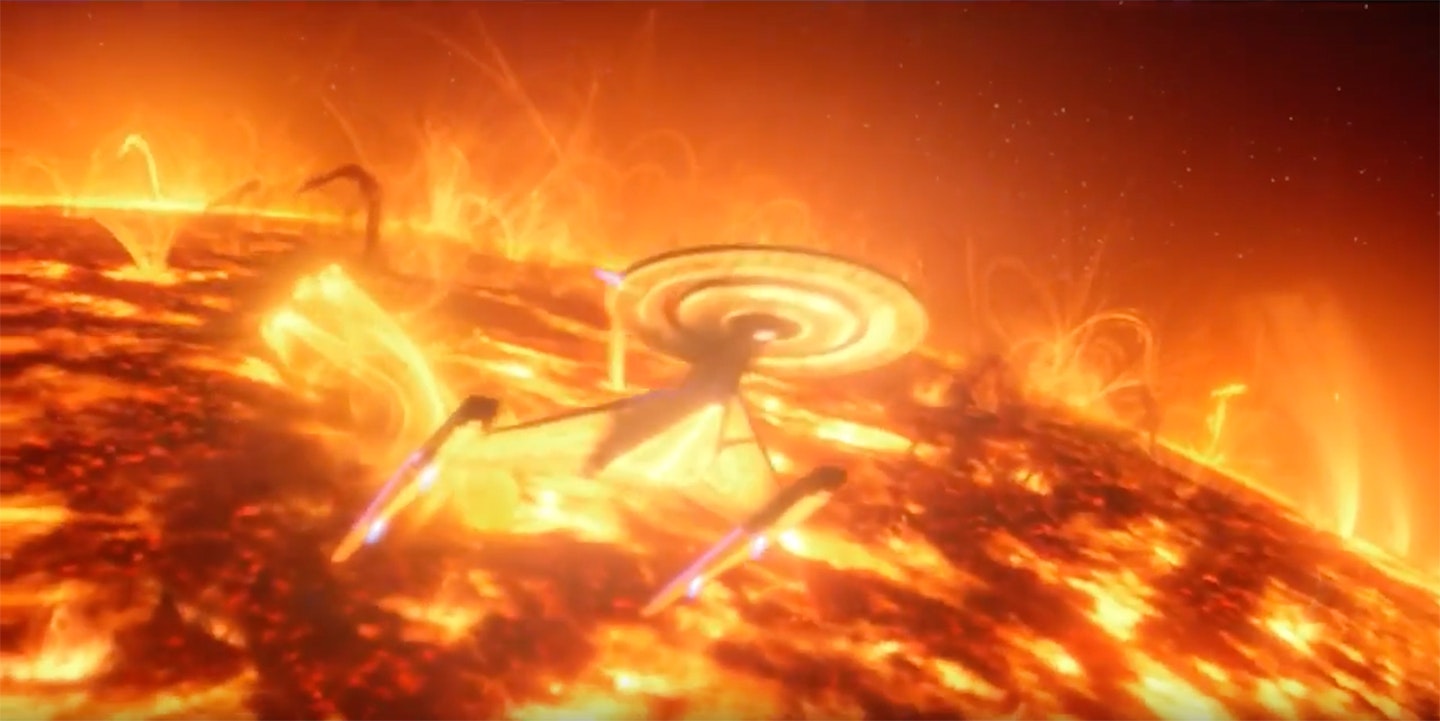
Nice bits between the characters: Lorca is making demands of Stamets and the drive, and Stamets gives back as good as he gets, resulting in a subtle smile from Saru. There is also the first sign of respect from Stamets to Burnham when her theories regarding the creature turn out to be correct. A scientist and explorer (and not, he emphasizes to Lorca at one point, a soldier), he may have caught a glimpse of a kindred spirit.
The tension between Saru and Burnham remains very much alive, starting with a run-in on the turbo lift that makes it clear he had not been told that she was staying aboard under direct orders from the captain (which does seem a little odd, given his position as first officer). Things don't improve later on when she uses him, under the pretense of wanting to apologize for the way she treated him in the past, to prove that the creature isn’t harmful (his “threat ganglia” — think of it as the Star Trek version of Spidey-Sense — doesn’t react to being in the vicinity of the creature).
Early on Burnham is given a container from Georgiou’s will that she refuses to open until episode’s end. A holographic message (Michelle Yeoh) conveys the late captain’s feeling that Burnham is like a daughter to her, the gift is her family telescope, handed down over the centuries within her family. Now she has bequeathed it to Burnham, with the message to not only take care, but take care of those in her care (which will no doubt impact on her interaction with the creature in future episodes).
Cool visual effects: When Discovery makes a jump, it nearly crashes into a sun, which is very effective, particularly as they attempt to pull out of its gravitational pull. Also a couple of moments where the camera flies through the main screens of the ship from space onto the bridge are nicely done.
On the other side of things, one of the stupidest scenes in the episode is when Security Chief Landry, impatient with Burnham’s more humanistic approach, attempts to sedate the Ripper and enter the chamber, armed to hack off one of its claws for studying. She is, of course, murdered by those very same claws. Designed to drive home Burnham’s hypothesis that the creature only becomes aggressive when protecting itself, it only shows that Landry was a nimrod who should have known better and kind of got what she deserved. Poorly handled idea and a gratuitous death.
We’re still not sure where the Klingon plot is going, but those sequences remain ponderous. This could be due to the fact that, while it’s admirable to have them speak nothing but their language while giving us subtitles, there should be more of a sense of energy with those characters. More clipped editing. As a result they're not all that involving.
Oh, and you've got to love the title: "The Butcher's Knife Cares Not For The Lamb's Cry." That's the kind of thing they would try on The Original Series ("For The World Is Hollow And I Have Touched The Sky" immediately comes to mind).
